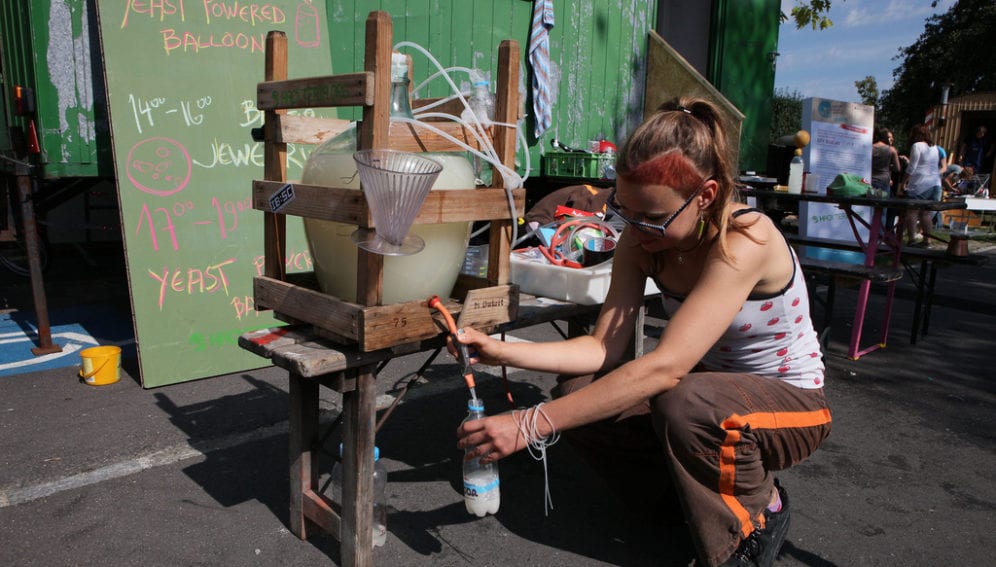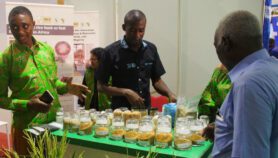By: Joshua Howgego
Send to a friend
The details you provide on this page will not be used to send unsolicited email, and will not be sold to a 3rd party. See privacy policy.
[LAUSANNE, SWITZERLAND] Spreading a ‘hacker mentality’ of hands-on problem solving with available equipment may help to reboot development — but only with coordinated information management and hacking workshops, a meeting has heard.
The number of workshops and ‘hackspaces’ championing this do-it-yourself (DIY) mentality is growing in the developing world, said Denisa Kera, a researcher at the University of Singapore who organised a hackathon and a series of talks on the ‘openness paradigm’ at the 2014 Tech4Dev meeting in Lausanne, Switzerland, last week (3-6 June).
Such spaces have sprung up in Accra, Ghana; Kathmandu, Nepal; and in “sites all over Taiwan and Indonesia”, she said.
“The hacker mentality can be a very empowering and educational tool.”
Marc Dusseiller, Hackteria
But Marc Dusseiller, cofounder of the biohacker collective Hackteria, told SciDev.Net that it remained a challenge to connect people with the open hardware information that would help them create useful solutions — especially those in poor communities and those with no connection to universities or existing hackspaces.
There was general agreement among the hackers that more workshops and hackspaces would increase the approach’s development impact by giving local people hands-on experience of hardware hacking.
Hacking development
Kera said the hacking community stands out from more-traditional development professionals. “[They] got the idea that we were different because all the stories that we presented [at our conference session] were not about how people ‘adopt’ technology, but about how they pioneer it themselves,” she said.
One such story came from Nur Akbar Arofatullah, a researcher at the University of Yogyakarta in Indonesia, who was inspired by a local hacking workshop to customise an open-source microscope to create a DIY webcam microscope kit. He now uses this to show local communities that water from nearby streams contains microscopic organisms, educating them about hygiene.
Arofatullah spoke of the difficulty scientists at his institution had in purchasing equipment, saying the philosophy behind his work was: “If you cannot buy one, let us try to build one, and learn valuable new skills in the process.”
Open to the poor?
But the meeting also saw delegates raise the question of whether hacking or open-source hardware is any use to poor people who are not already engaged with science.
Gabriella Levine, a designer and open hardware advocate at New York’s Tisch School of the Arts in the United States, said a centralised repository of open hardware information would help people access information more easily.
“I think that standardisation and some sort of centralised organisation — a website, a wiki or even just a list that has details of all open-source hardware projects — is needed,” said Levine, who is also the president of the Open Source Hardware Association, a not-for-profit organisation supporting and advocating for this community.
The association has been suggesting ways to standardise open-source hardware information, for example through a report, Introduction to open source hardware, due to be released later this week.
But Levine added that raw information alone will not be enough, and workshops will remain essential.
Ultimately, says Dusseillier, it is about spreading the hacker mindset so that people can challenge the way things are done.
“The hacker mentality can be a very empowering and educational tool,” he said. “By doing workshops, like the one we’re doing here, we can promote that mentality: you can help yourself, you don’t have to rely on products and companies.”














